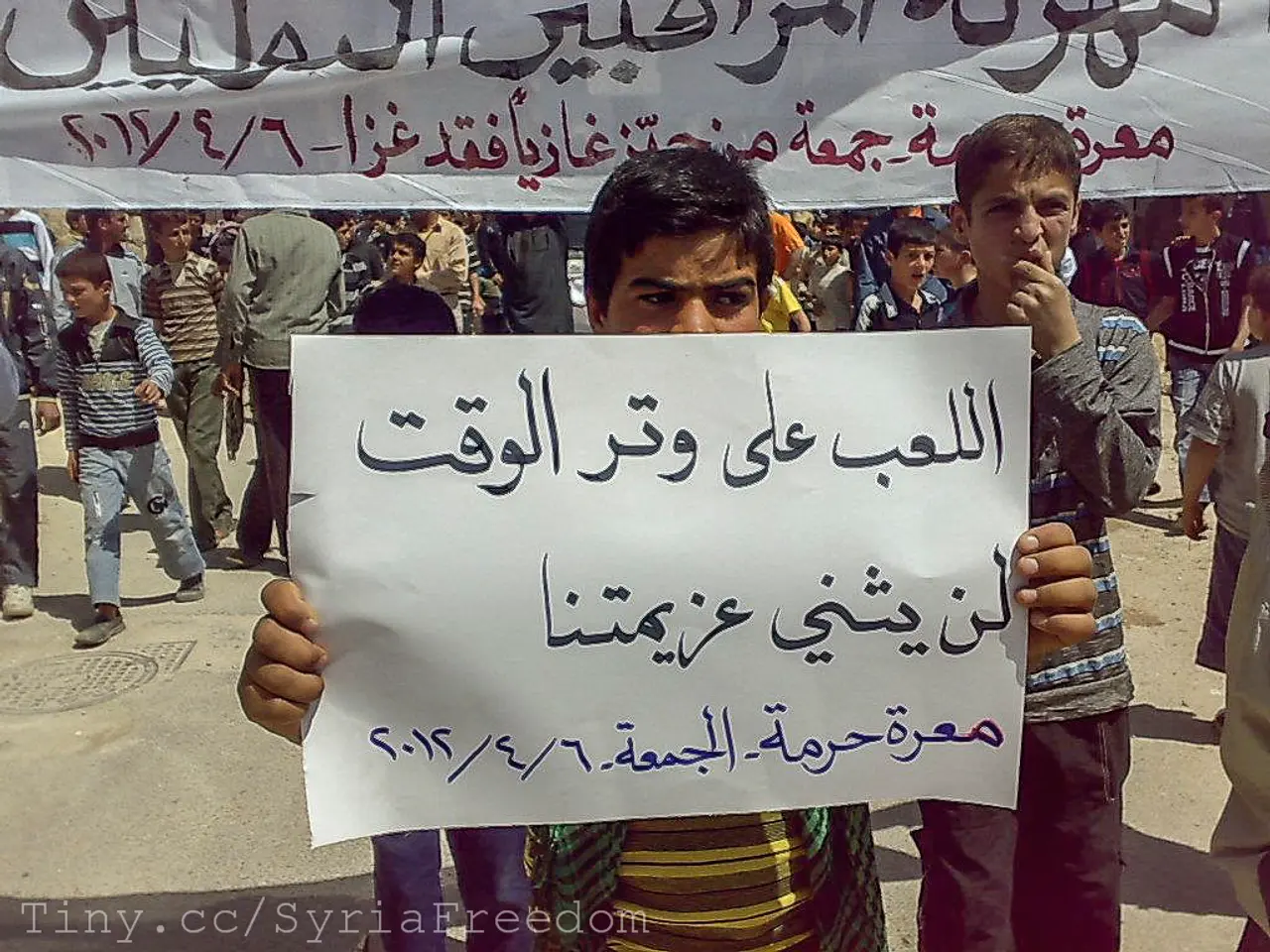Germany alters its strategy in the Gaza conflict
In response to Israel's decision to escalate its offensive in the Gaza Strip, Germany has suspended all military exports that could be used in the ongoing conflict, effectively placing an arms embargo on weapons and military equipment relevant to combat in the Gaza Strip[2][3][5].
Chancellor Friedrich Merz announced this policy shift, stating that Germany's top priorities should be the release of hostages and targeted negotiations for a ceasefire[1]. The suspension applies to new deliveries and exports authorized "until further notice."
Before the suspension, Germany was a significant weapons supplier to Israel, being the second largest after the United States[1]. The types of military goods Germany had supplied included armored vehicle engines used in the conflict and Sa’ar 6-class frigates utilized by the Israeli Navy for strikes related to Gaza[2].
The embargo targets all new military exports that could be deployed in Gaza, such as armored vehicle parts and naval vessels, while earlier supplies remain in use. No detailed public list specifying each individual weapon type or system currently barred has been disclosed, but the scope covers various military equipment applicable to the Gaza conflict theater[2][3][5].
Israeli Prime Minister Benjamin Netanyahu has accused the German government of rewarding Islamic Hamas with a partial arms export ban[4]. However, Germany continues to affirm Israel's right to self-defense but expresses deep concern over the humanitarian impact of the intensified military offensive and urges Israel to allow uninterrupted relief access to civilians in Gaza[1][3].
The opposition in Germany, including the Green Party and the Left Party, believes the federal government's course change doesn't go far enough and is calling for further steps, such as active push for a political process, serious pressure for an end to the war and the humanitarian catastrophe, the release of hostages, and a political perspective[6].
Five principles were decided upon to end the war in the Gaza Strip: disarmament of Islamic Hamas, return of all hostages, demilitarization of the Gaza Strip, Israeli security control of the coastal region, and establishment of a civilian administration not subject to Hamas or the Palestinian Authority[7]. It remains unclear how these principles will be implemented and whether they will lead to a resolution of the ongoing conflict.
The German Chancellor, Friedrich Merz, has announced a policy shift, placing an arms embargo on weapons and military equipment relevant to combat in the Gaza Strip, citing Germany's top priorities as the release of hostages and targeted negotiations for a ceasefire. Amidst this war-and-conflicts politics, general news coverage discusses the implications of this embargo, including the suspension of new deliveries and exports of military goods that could be deployed in Gaza, such as armored vehicle parts and naval vessels.





